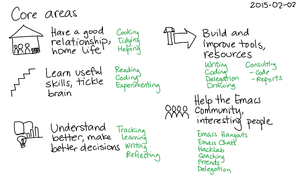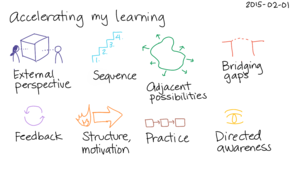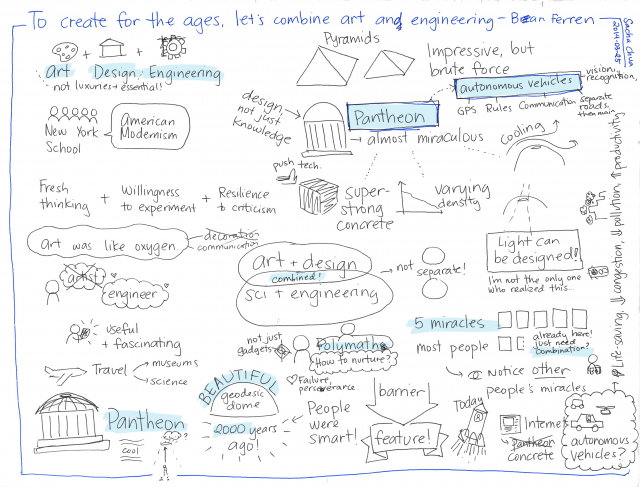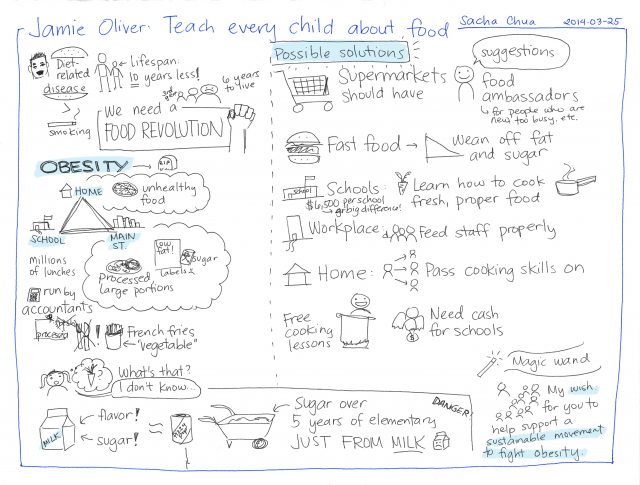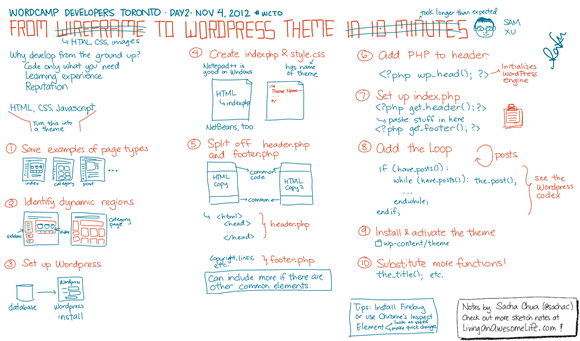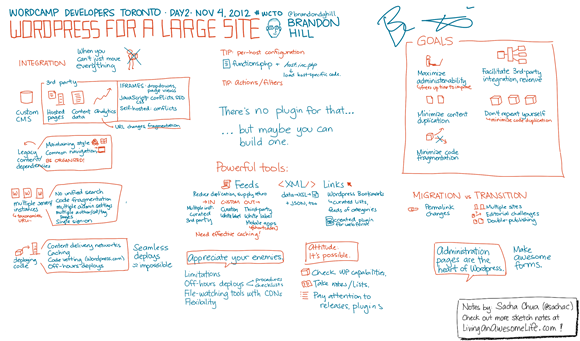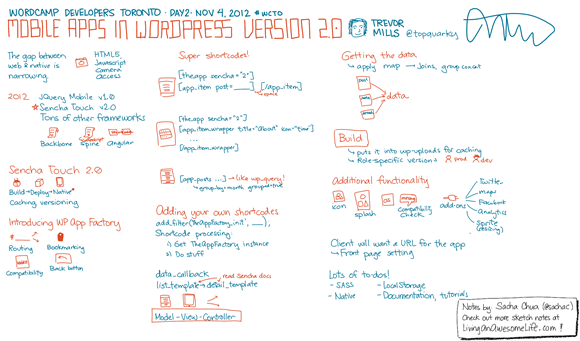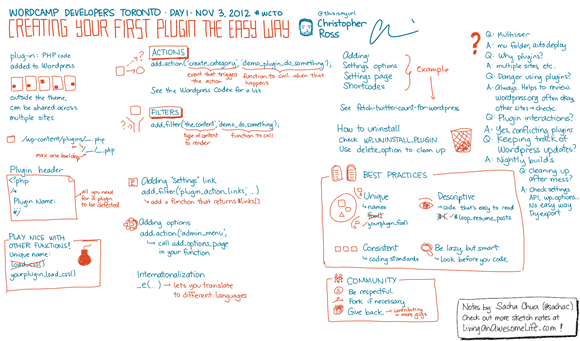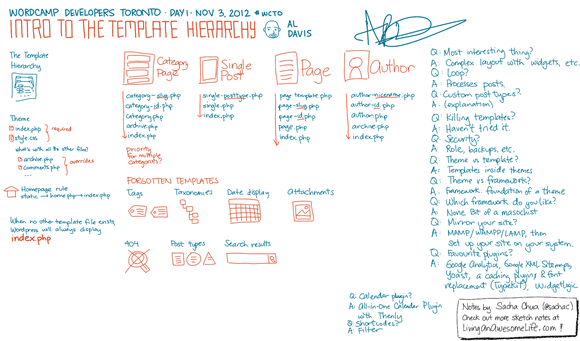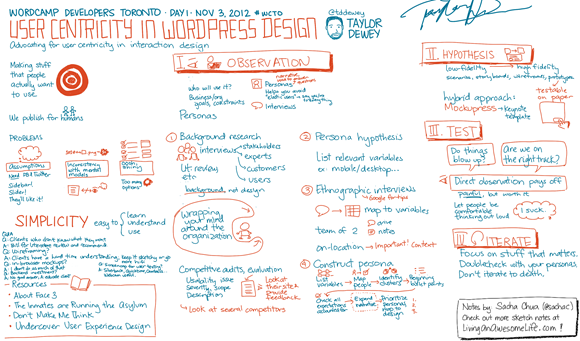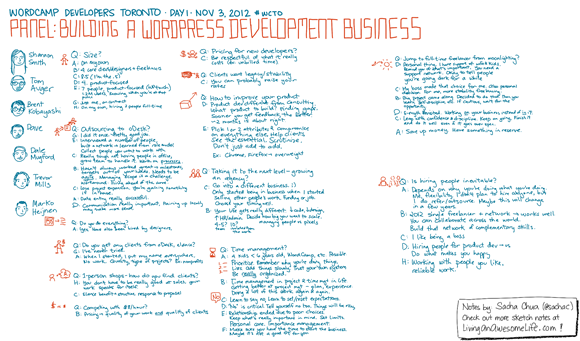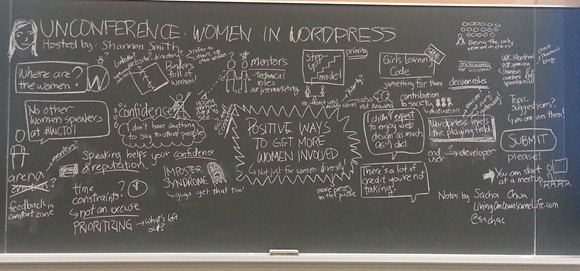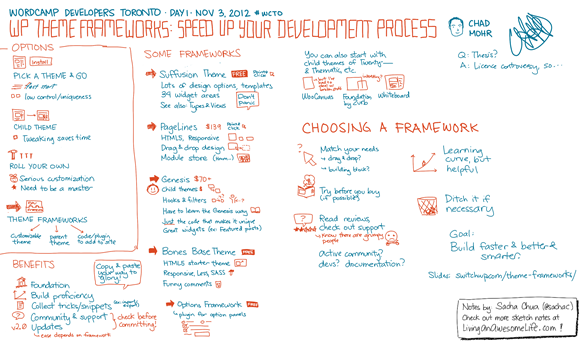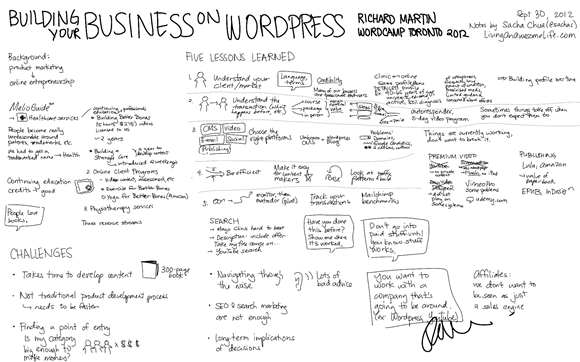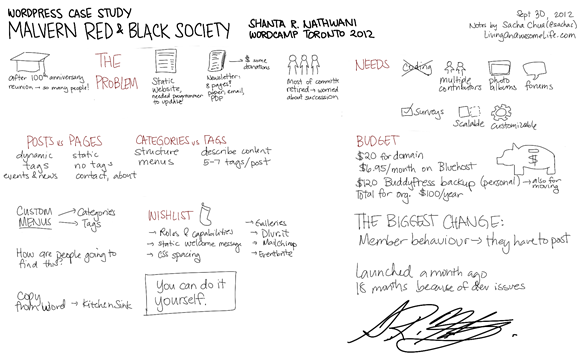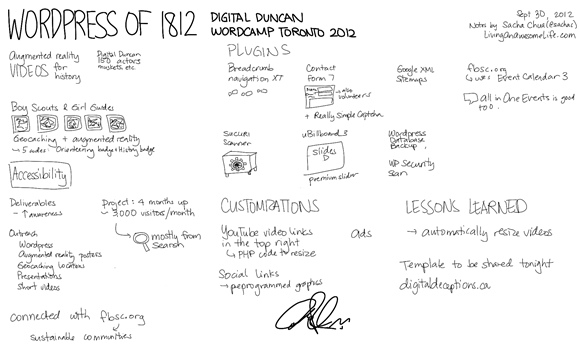Let’s have a virtual Emacs conference in August – help me make it happen!
Posted: - Modified: | conference, connecting, emacsWhy August? It's an arbitrary target, although it tickles my brain to think about celebrating my 32nd birthday with awesome people sharing awesome ideas. (Incidentally, I'll also reach the point of having been using Emacs for about half my life – doubly neat!)
Anyway. I think it would be great to have some kind of knowledge-swapping thing. Since I'm not particularly keen on travelling, not everyone can make it out to Canada, and it's hard to make awesome in-person conference recordings anyway, maybe a virtual conference would be a great bet. I'm willing to spend what I would have paid for airfare on things like organization, speaker honoraria, and other good things.
I enjoyed the Emacs Conference in 2013, and I think we should figure out how to have these kinds of get-togethers more often. Emacs Chats and Emacs Hangouts are tiny steps in that direction, and I'd appreciate help in making this and many other community-ish things even better. =)
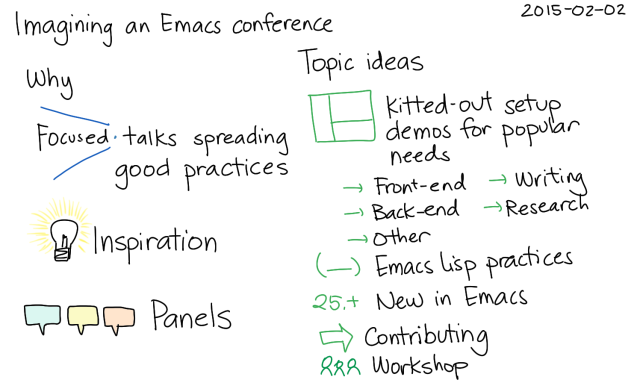
So here's what I imagine a virtual Emacs conference might be like. People volunteer, and somehow we organize a schedule of fascinating talks. This could be a full day, or maybe we'd spread it out over a couple of half-days (maybe even scheduled for different timezones so that everyone has something they can interact with life). We use Google Hangout on Air or a similar platform that can stream and automatically record. There's the speaker with slides and screensharing, and there's a moderator who can pick up questions from IRC and Google Hangout in order to ask them out loud. We might even be able to pull off panel discussions. Afterwards, there's a playlist and a webpage with all the videos/MP3s/OGGs, and people can share their notes/discussions/follow-ups.
All this is immensely doable with the technology we have today. For free, even. Anyway, the technology should be okay.
What about topics? Here's what I'm particularly curious about:
- New features in Emacs 25 (and beyond)
- Demos, workflows, and setup tips for popular toolsets/needs (ex: awesome setups for Clojure/CL, Rails, Javascript, C++, Java, writing, research)
- Fascinating uses of Emacs
- Good practices for Emacs Lisp: automated testing, performance, reliability, coding style/idioms (maybe even workshops along these lines)
- Demystifying cool stuff: how core modules work, how to contribute to Emacs
- A hackathon: get package.el headers on everything! fix bugs! make improvements! document!
- Emacs microhabits, learning
- Workshops: intermediate/advanced use of Org Mode, Calc, ESS, and other powerful packages
- Emacs community-building and sharing
And people can suggest other topics, too. =) Maybe we can even figure out some kind of unconference setup: people suggesting topics they can share, quickly voting on what they're interested in, and breaking up into separate "rooms" to share/discuss.
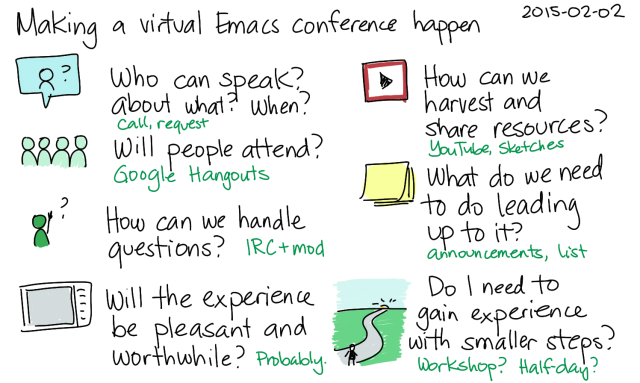
An Emacs conference would be awesome. Here are my (pitiful) excuses for why I haven't figured out how to organize one yet, and things I want to figure out (especially with people's help):
- Who might be interested in speaking? How does one go about organizing speakers, schedules, topics, tech, etc? I'm still slowly getting the hang of reaching out to people and inviting them to Emacs Chats.
- Will people show up and ask questions? Part of me is worried that I'll pick entirely the wrong date/time/topics and there'll be awkward silence.
- How can we handle questions? IRC, probably, so that people can chat about stuff too. I think I'm pretty comfortable at keeping an eye on stuff and repeating people's questions. Or maybe people can join the Emacs Hangout if we can get the flow to be smooth?
- Will the experience be pleasant and worthwhile? Maybe not as goosebump-inducingly awesome as being in a room with 80+ other Emacs geeks, but I think it will be worthwhile.
- How can we harvest and share resources? Hangouts on Air will put videos on Youtube automatically, so that'll be taken care of.
- What would we need to do leading up to it? Something about a mailing list, and a webpage, and lots and lots of coordination.
- Do I need to gain experience/confidence with smaller steps? Or maybe find some accomplices?
Of course, if someone wants to organize an in-person one, that's cool too. Especially in Toronto. That would be awesome. =) (Although I might be able to get to New York or similar places too…)
My evil plans for a conference like this include:
- Getting cool stuff out of people's heads/fingers/configs and into a form that other people can look at, learn from, and link to
- Ditto for good practices that can help us develop better code (performance)
- Discovering resources and tips we might not have found out about otherwise
- Sparking more conversations and follow-ups
- Spurring people to create and share more resources
What could help the Emacs community learn even faster?
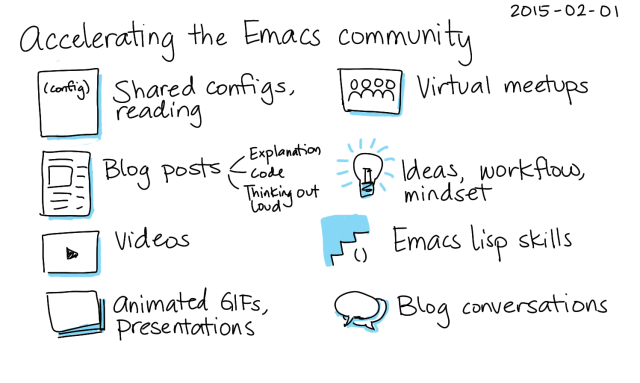
How can we get more people sharing their configs, or learning from other people's configs? How can we make it easier for people to share through blog posts, videos, animated GIFs, and presentations? How can we create spaces for people to connect, either with virtual meetups or in person? How can we swap interesting ideas, workflows, and mental habits? How can we improve our skills? How can we keep the conversation going?
Mm. Figuring out how to do virtual conferences might be a good start. Also, I've got this idea noodling around in my head on having some kind of an intermediate/advanced Org Mode workshop: something that covers clocking workflows, table calculations, literate programming, data analysis, publishing. Figuring out how to do virtual workshops would be awesome too.
Okay. First things first. Some kind of date and some kind of time, and some kind of help sorting out a schedule. August 8 and/or August 15, maybe? If librarians can hold an online conference through Google Hangouts, we should be able to figure this out too. (Librarians are super-cool!) If you have lots of experience in organizing virtual conferences or you have ideas for how to make this less intimidating for a non-organizer-y introvert, I'd love to hear from you in the comments or at sacha@sachachua.com. Let's make this happen!

